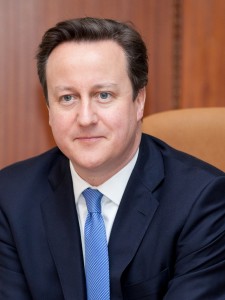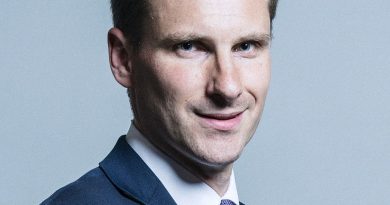David Cameron – 2024 Speech on the Future Role of the NATO Alliance
The speech made by David Cameron, the Foreign Secretary, on 3 April 2024.
Great to be here, in this house that has many memories for me as you can imagine, when I think of all those European Councils, where I spent late nights and early mornings, and it’s very good to be back.
Seventy five years. NATO is 75 years old. I am 57 years old. But I hope there’s more than just the symmetry of that that I bring to this discussion. I played my part in NATO’s development and am very proud I chaired the Cardiff Summit in 2014, when I think at that stage, just 3 countries met the 2% spending floor, not ceiling, floor, and now we’re in a situation where over 20 countries out of 32 meet that target and NATO is stronger.
I always feel that NATO wasn’t something I had to learn about or understand: I grew up with it. I was born and brought up between Greenham Common, where the cruise missiles were stationed, and Aldermaston, where our nuclear programme was centred. The first countries I visited as an adult were the Soviet Union and Eastern Union. So I never needed reminding or understanding of the vital importance of NATO in our national life.
And it’s been extraordinary, having supported it all through its quiet years – years in which some people whether it had a functioning brain – I never lost faith in NATO. I’ve always set the faith in NATO and it’s great to be celebrating its 75th anniversary. And the 75th anniversary when it is so much stronger today than it has been for years.
And today of course, at the NATO Foreign Ministers’ meeting we welcomed Sweden for the first time as a full participant. And to bring 2 countries, Finland and Sweden, into NATO, both so highly capable militarily, so financially strong, so knowledgeable about the region, and their military obligations definitely makes NATO stronger.
Why is NATO so successful? What is next for NATO? What will truly determine its success or failure in the years ahead?
Why so successful? You’d have to back to 1948 and something Ernest Bevin said, he said: ‘decisions we take now will be vital to the future peace of the world’. That was absolutely prophetic and right. At the heart of NATO’s success is the incredible simplicity of Article Five: an attack on one is an attack on all is something all participants and all people could understand.
And of course, it was combined with that sense when it was founded of a clear and growing threat. And Most of NATO’s life has had a clear threat; we certainly have that today. Its success is clearly based on its continued expansion.
What is next for NATO? While it’s clear NATO is not a participant in the conflict in Ukraine, the outcome of that war what happens in Ukraine is, in my view, absolutely vital to the future of Ukraine, and that is why one of the reasons why Britain so strongly supports Ukraine struggle.
I was meeting earlier with the Slovak Foreign Minister and I pointed out something that not a lot of people know, that my closest relative who was in politics, Duff Cooper, who resigned in 1938 because of the Munich Conference and the decision to dismember Czechoslovakia. To me what we face today is as simple as that. We have a tyrant in Europe who is trying to redraw borders by force. You can appease that approach or you can confront that approach, which is undoubtedly the right thing to do, to confront.
And that is what we’re doing by giving Ukraine such strong support. I see with Ukraine 2 futures that are open to NATO, to Europe and countries like Britain: there is a future where we support Ukraine, where Putin does not win in Ukraine, where Ukraine recovers its territory and is capable of having a just peace.
That future is an incredibly bright one for Britain, for Europe, for NATO – it’s a future where NATO will be strong, everyone will see the strength of its alliance, everyone will recognise Ukraine should be and will be a part of NATO, NATO’s capability will grow and people will see that we in the West are capable of standing up to a threat of this magnitude.
But there is another future, for NATO, the West, Britain and that is one where we allow Ukraine to fail and Putin to succeed; and the celebrations will be held in Moscow, Beijing, Tehran and North Korea. That is a very bleak future: not only because I believe other European countries would be at risk but I think all around the world people will look around and wonder how willing to stand up for our Allies, how reliable we were as an Ally.
And even, the absolute key to NATO of Article 5, Allies in Europe will start looking at each other and wondering how much they can really trust each other, when they said they were going to stand up for each other and oppose aggression. I think the biggest test for European nations is this issue of Ukraine and that is why it is my number one priority as Foreign Secretary and something that this government is giving so much effort and thought and resources to.
But of course it’s not the only threat and it’s not the only issue that NATO has to face in terms of what is next. we face an incredibly dangerous and difficult and disputation relational world with so many conflicts. We have the instability in the Middle East instability in Africa, more conflicts in Africa than perhaps we’ve had for the last 40 years.
And of course, we had a timely reminder last week with the issue of Chinese, the cyber attacks on great hardware blocks, that we face threats, not only in terms of the Russian threat, but also the threat that we face, instability to our South and in the Indo-Pacific reaching into our own region. NATO has a role to play in addressing all of those threats. The UK is determined to support all the NATO strategies in dealing with those threats.
The final point I wanted to make is, what will determine the success or failure of NATO? There are some simple, Treasury-like technical answers to that: success will depend on more and more countries reaching 2% or more countries seeing 2% as a floor and not a ceiling and we have seen such great progress there.
A large part of the answer will be how capable NATO is of modernising all our armed forces and making sure their compatibility interoperability. A lot of NATO success will depend on when we make Ukraine a member, with its professional and capable armed forces.
But I would say the biggest determinant of success or failure goes back to what I said at the start: I grew up believing in NATO because it had a relevance to my life. If you came of age politically in the 1980s, you could see the importance of the solidarity that NATO brought, you could see the importance of the strong defence that kept Europe and Britain safe. But can we actually say that, about future generations, you haven’t grown up with that knowledge but have grown up in a different situation?
And I think we have to win the argument for NATO all over again with a new generation. A generation that can see yes, the threat from Russia. We need to go back to a foundational argument, which is this, that fundamentally the greatness of NATO is that it allows countries to choose their own future.
When I looked at my colleagues from Latvia, Lithuania Estonia, when I look at Radek Sikorski from people whose countries who chose to join NATO after the fall of the Iron Curtain, NATO membership is really what gave them the ability to make a choice about the sort of country they would be and the values they would follow.
That’s an incredibly strong values-based argument that a younger generation can understand and see. I just think the one figure to back it up: when the Iron Curtain fell, Poland recovered its ability to govern itself and its economy was 3 times the size of that of Belarus; today it’s 10 times the size.
There’s no reason why Ukraine is so many times poorer than Poland, very similar countries, very similar parts of the world. It’s the ability NATO gives to allow countries to choose to be democracies, to choose to have rights and to choose to have the rule of law, to adopt an open-market trading system and form those sorts of relations with other countries.
That’s the argument I think we need to make today and that is the argument that can help us to win all over again the backing for NATO, that it will need, as we ask our publics to fund and support the defence budgets and NATO budgets, as we ask NATO to do more, not just in supporting what we’re doing in UKR but also supporting what we need to do in a more unstable and more unsafe words.
So I feel more confident as a 57 year-old supporting a 75 year-old that I’m backing a winner: it’s been a winner for 75 years, it’s been it’s been the most successful defensive alliance in the history of the world and if we back it financially, and back it in its expansion and also back it with values-based arguments, there’s no reason it won’t continue have another 75 years of extraordinary success.


